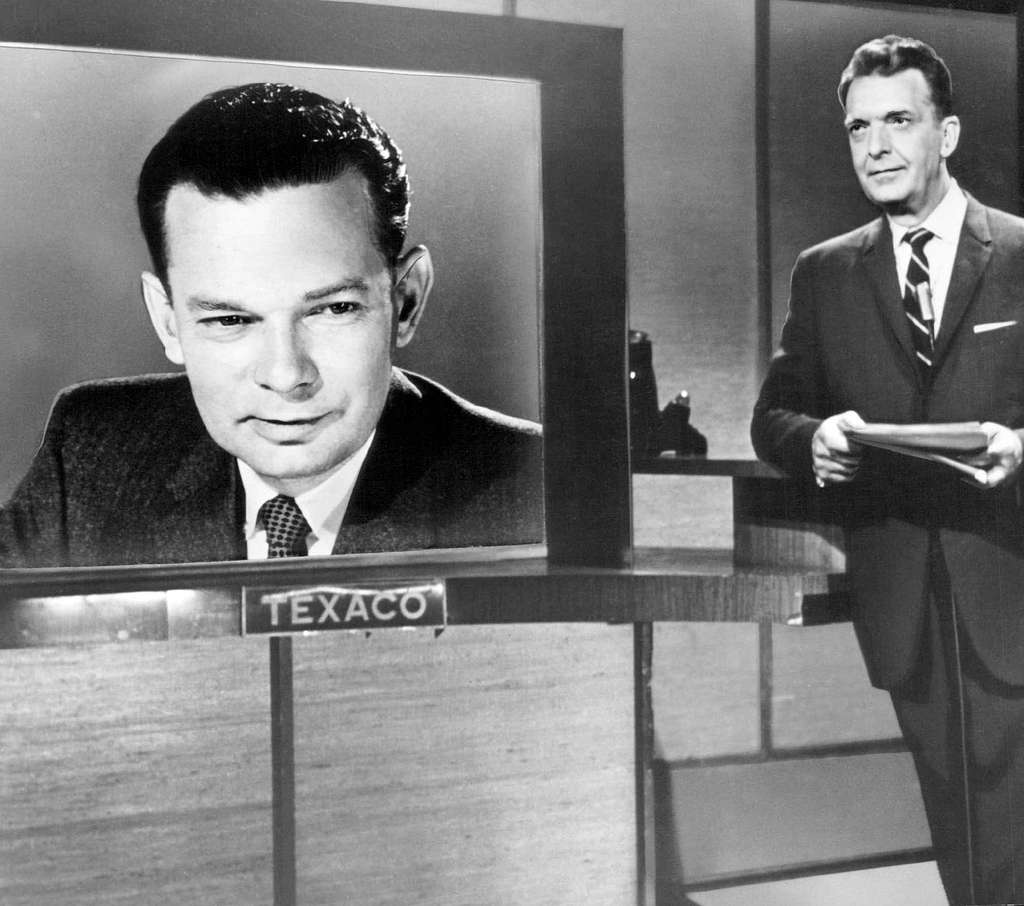Every week or two somebody tells me how agitated the news makes them.
As a teenager in the 60s, I watched NBC’s The Huntley-Brinkley Report most nights of the week. I appreciated the work and partnership of the two anchors (as well as the theme music under their closing credits from the 2nd movement of Beethoven’s Ninth Symphony).

The news was not easy that decade—Vietnam, demonstrations, assassinations, riots. But we also had elements of hope in landmark Civil Rights legislation and men going to the moon. The news industry wasn’t perfect. But with the Big Three networks dominating coverage, we had the assumption of middle-of-the-road attempts at objectivity, to help us be better, more responsible citizens.
No more. The main strategy of politicians and news/opinion outlets is not to provide evenhanded information and considered judgments but to make us distressed and angry. Talk radio and late-night comics do the same. All these fear factories are succeeding wildly in these efforts. Why put up with it?
Tell me I’m nuts. But I have an answer for my anxious friends. I firmly believe we can be better informed and better citizens. It is fourfold. Here are two. I’ll cover two more in my next post.
First, stop following the news and start reading books.
Granted, some people need to follow some parts of the news. If your livelihood is in sports, you need to follow sporting news. If your livelihood is in banking or business, you may need to follow financial news. But most of us do not need to regularly consume political news.
Inherently the news industry gives the impression that what is new today is the most important thing. It is not. In a few months we will forget the latest celebrity divorce, scandal in Congress, or outrageous comment by a pastor, politician, or pundit.
Long-term trends that don’t make the news are much more important—like the epidemic of loneliness among adults or the mental health crisis among teenagers. Books are more likely to take the long view (looking at the last ten, forty, or one hundred years), and to go in depth on issues rather than focus on fleeting sound bites.
Second, stop following the news and start helping others.
Part of our anxiety about the news is because we can’t do anything about it. Once every couple years we can vote but that is not enough to compensate for the daily waves of worry the news can cause.
Rather than encouraging love, joy, peace, kindness and the rest of the fruit of the spirit, the news engenders anger, frustration, and helplessness. If we intentionally fill our minds with troubles, our hearts will also be full of troubles. That’s why the apostle Paul says:
Whatever is true, whatever is noble, whatever is right, whatever is pure, whatever is lovely, whatever is admirable—if anything is excellent or praiseworthy—think about such things. (Philippians 4:8)
If we are thinking daily about how terrible, stupid, and evil people are who disagree with us, we will be shaped by that anger and become harsh, mean, and hateful people ourselves.
While we may be helpless in the face of national and international news, we are not helpless when it comes to serving people and making a difference with those around us. We can visit friends in the hospital, donate blood, or help out at a food pantry. We can volunteer as a tutor, at a job training program, or at Habitat for Humanity.
All it takes is googling “local volunteer opportunities,” and you’re sure to find access to dozens of options, one of which is sure to fit your skills, interest, and schedule.
We have other highly practical ways to fight the fear factories. I’ll cover two more in the next post.
—
Image: Wikimedia Commons

One thought on “Fighting the Fear Factory (Part 1)”